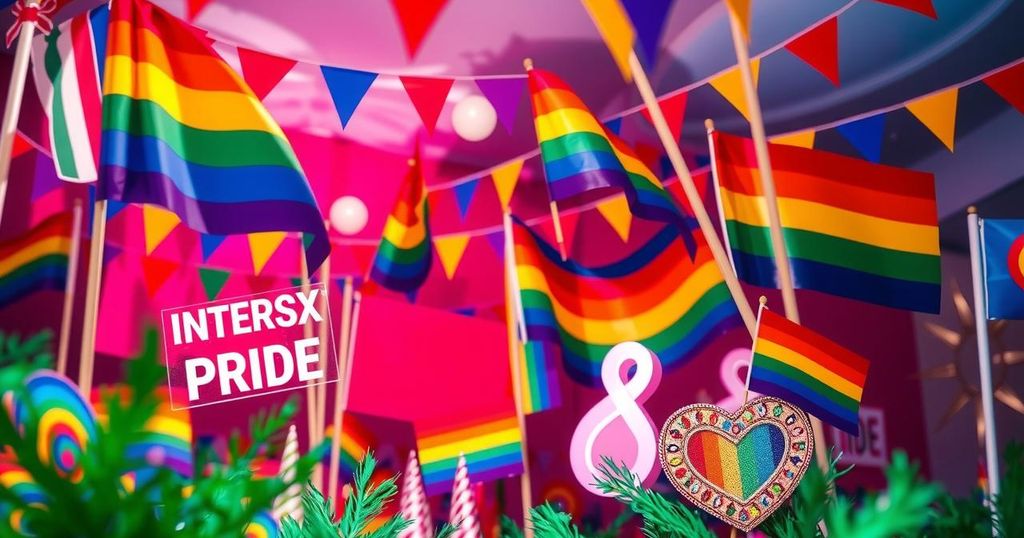Intersex Kenyans aim for distinct recognition; U.S. Supreme Court rules on foreign aid. The People’s Matrix refutes Trump’s claim regarding funding, while Hungary restricts Pride parades. Canadian sponsors withdraw from Toronto Pride due to political movements. Protests in memory of a drag queen highlight police homophobia; U.S. disengages from UN LGBTQI+ group. Legislative changes risk LGBTQ+ rights in Turkey, while Spain honors bravery in an assault case.
In Kenya, intersex individuals are moving away from the wider queer community, aspiring to gain legitimacy as a distinct identity rather than being associated with more contentious LGBTQ+ issues. Recently, intersex has been acknowledged as a third gender on birth notification certificates. Dennis Wamalwa, a commissioner with the Kenya National Commission on Human Rights and leader of the Intersex Persons Society of Kenya, emphasized that this separation aims to secure intersex recognition without entanglements in queer controversies.
Meanwhile, the U.S. Supreme Court ruled against the Trump administration’s request to maintain a freeze on billions in foreign aid. The decision, with a majority of five justices, allowed the White House to contest the release timeline of funds in lower courts. This ruling comes amid challenges from health organizations focused on supporting HIV prevention efforts.
In Lesotho, the LGBTQ+-rights organization The People’s Matrix refuted the assertion made by Donald Trump that they received $8 million from the U.S. for promoting LGBTQI+ rights. Tampose Mothopeng, a spokesperson for the organization, stated, “We are literally not receiving grants from the U.S.” This statement was backed by the nation’s Foreign Affairs Minister, who found Trump’s comments surprising.
In Hungary, the government is intensifying its control over the annual Budapest Pride parade, which has been established for nearly three decades. Citing alleged child protection concerns, officials have indicated that the parade should not occupy public spaces. Neela Ghoshal, senior director at Outright International, argued that forcing Pride into hiding undermines its fundamental essence.
U.S. President Trump’s opposition to diversity, equity, and inclusion initiatives has reportedly affected Toronto Pride, leading to the withdrawal of major sponsors. Executive Director Kojo Modeste indicated that both a silver and two gold sponsors have ceased funding due to a comprehensive reevaluation of their marketing strategies.
In the United Kingdom, a protest is scheduled outside the Houses of Parliament in memory of the drag queen Heklina, aiming to highlight alleged homophobia within the Metropolitan Police. The protest includes notable figures from the drag community, such as Peaches Christ and Ana Matronic, emphasizing the event’s peaceful nature.
The U.S. has withdrawn from The U.N. LGBTI Core Group, a coalition dedicated to advocating for LGBTQI+ rights globally. Various nations, including Chile and the Netherlands, co-chair this group with the Biden-Harris administration previously prioritizing this issue at the forefront of its foreign policy.
In Scotland, Edinburgh Women’s Aid announced a policy change, stating that it will no longer accommodate trans women and non-binary individuals, diverging from the more inclusive stance of the national Scottish Women’s Aid organization. This shift has sparked significant discussion surrounding gender inclusivity in service provision.
A proposed legislative change in Turkey seeks to legally enshrine “biological sex” while criminalizing the promotion of LGBTQ+ rights. If adopted, this draft law could impose penalties on anyone who conducts same-sex marriage ceremonies, following President Erdogan’s declaration of 2025 as the “Year of the Family.”
In Spain, the city of A Coruña honored Ibrahima Diack and Magatte N’Diaye for their courageous intervention during an assault that led to the death of gay nursing assistant Samuel Luiz. The recognition came during a formal ceremony where they were bestowed the title of “adopted sons of the city.”
At the 50th Cesar Awards in Paris, Emilia Pérez garnered significant acclaim by winning best film and director among other accolades. The event highlighted Pérez’s film’s achievements amidst competitive nominations, strengthening her recognition within the film industry.
The recent developments concerning LGBTQ+ rights globally reflect a varied landscape of support and opposition. In Kenya, intersex individuals seek distinct recognition, while the U.S. Supreme Court’s decision reopens foreign aid discussions. Conflicts arise in Lesotho, Hungary, and Turkey over LGBTQ+ identity and rights, amidst a backdrop of changing dynamics in events like Toronto Pride. The dialogue surrounding inclusivity continues, showcasing a critical intersection of culture, politics, and advocacy within differing international contexts.
Original Source: windycitytimes.com




